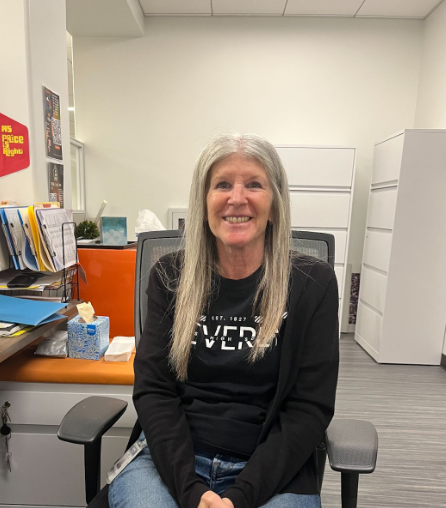Marguerite Alberts, Staff Writer
During the teenage years a lot can change besides your academics and social life. The body changes as well, including the mind. The teenage mentality is vastly different than the adolescent mentality. It is just as important to know what is going on mentally as physically. Teenage depression is a serious problem, affecting every aspect of a teenager’s life by causing sadness, lack of confidence and affecting day-to-day activities.
It is hard for teenagers to understand what is going on inside of their bodies when their hormones are raging all of the time. These regulators affect teenagers’ entire lives, especially their emotions and mental health. Hormones can make a person joyous one minute and then terribly sad the next.
Mood swings are common in teenagers, but sometimes emotions can be much more serious. Twenty percent of teenagers will have a case of depression before they reach the age of 20, according to teenagedepression.org.
“I emphasize that everyone will have a bout of depression in their lifetime,” health teacher Colleen Lynch said. “However it becomes a mental disorder when it goes on for long periods of time and starts to impede on everyday functions.”
As a health teacher, Lynch is in charge of educating students on mental disorders such as depression. She teaches students about clinical, manic and bipolar depression, the three different classifications of the disorder. Manic depression and bipolar depression are interchangeable. Not everyone will go through all of these stages.
It can be difficult for students to decipher whether they are truly depressed or simply have intense hormone surges. If they need help to determine whether the former is true, they can go to places such as Teen Line.
“At Teen Line, we help and talk with teens about their problems. We help figure out a solution to their problem,” Teen Line volunteer and observer sophomore Arielle Shalom said. “As an observer, I respond to the emails that are sent from teens around the world, and give them resources to get help with their issue[s].”
Observers such as Shalom help by talking to struggling teens via phone calls, emails and texts. Anyone can call Teen Line if he or she needs someone to talk to or is on the brink of a massive break down or suicide. However, volunteers are not allowed to give advice.
“We don’t give advice, but [we] help the teens find a way to come to a solution for their problems. We also give outside resources where they can get help for the issue,” Shalom said.
There are many reasons why a teenager might become depressed. Lynch listed reasons such as breakups, loss of loved ones and divorce as causes of depression. Many of the causes she described were related to relationships.
“Nearly all our calls deal with relationships in some way or another,” Teen Line volunteer sophomore Shanna Benji said. “The relationships can be anything and deal with anyone from the caller’s boyfriend/girlfriend, best friend, sibling, parent, the list goes on and on. If you think about it though, that makes a lot of sense because we all deal with people in our lives–whether we like these people or not.”
However, some are more likely to become depressed than others. Depression is more often seen in girls, but boys are more likely not to show that they are depressed or to seek help.
“I think that there are sometimes signs that are outward, but it may difficult to recognize in all students,” Lynch said.
Another place that students can go is the Norman Aid Center. Peer counseling is during third period, however there are adults from the Maple Center, who come and help work with students, that are available at any time.
“We offer a service to the students in which they have a place to come and talk about whatever is on their mind in a safe environment,” peer tutor senior Joseph Steingold said.
Depression does not discriminate. Anyone can become depressed; it doesn’t matter what you look like, how much money you have, what race you are or even whether you are popular or not. If you are feeling anything that feels like depression, don’t hesitate to contact Teen Line at 800-852-8336 or visit the Norman Aid Center just down the hall from the library.




























